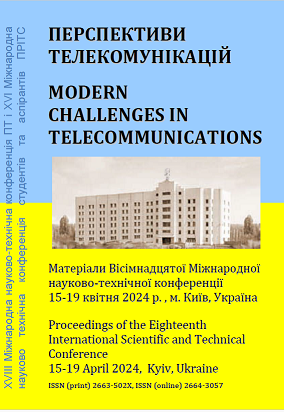КОМПЛЕКСНИЙ АНАЛІЗ МЕТОДІВ ВИКОРИСТАННЯ СИСТЕМ ЗБЕРІГАННЯ ЕЛЕКТРОЕНЕРГІЇ ДЛЯ MICROGRID
Ключові слова:
СИСТЕМА ЗБЕРІГАННЯ, ЕЛЕКТРОЕНЕРГІЇЯ, MICROGRIDАнотація
Дана робота демонструє детальний огляд систем зберігання електроенергії які використовуватимуться для мереж Microgrid та пропонує подальший напрямок розробки онтології для формування системи управління та досягнення бажаної інтероперабельності.
Посилання
Mohamad Amin Rajabinezhad, Arman Ghaderi Baayeh, Josep M. Guerrero (2020), “Fuzzy-Based Power Management and Power Quality improvement in Microgrid using Battery Energy Storage System”, 2020 10th Smart Grid Conference (SGC), P. 1-6.
Eklas Hossain, Ron Perez, Ramazan Bayindir (2017), “Implementation of Hybrid Energy Storage Systems to Compensate Microgrid Instability in the Presence of Constant Power Loads”, International Journal of Renewable Energy Research, issue v7i2, P. 1-13.
Aravind Ingalalli, Ravish Kumar, Srijit Kumar Bhadra (2018), “Ontological formulation of Microgrid Control System for Interoperability”, 2018 IEEE 23rd International Conference on Emerging Technologies and Factory Automation (ETFA), P. 1-8.
##submission.downloads##
Опубліковано
Як цитувати
Номер
Розділ
Ліцензія

Ця робота ліцензується відповідно до Creative Commons Attribution 4.0 International License.
Authors who submit to this conference agree to the following terms:a) Authors retain copyright over their work, while allowing the conference to place this unpublished work under a Creative Commons Attribution License, which allows others to freely access, use, and share the work, with an acknowledgement of the work's authorship and its initial presentation at this conference.
b) Authors are able to waive the terms of the CC license and enter into separate, additional contractual arrangements for the non-exclusive distribution and subsequent publication of this work (e.g., publish a revised version in a journal, post it to an institutional repository or publish it in a book), with an acknowledgement of its initial presentation at this conference.
c) In addition, authors are encouraged to post and share their work online (e.g., in institutional repositories or on their website) at any point before and after the conference.

